The latest study from Pew Research Center takes a look at the impact mobile technology, including the use of smartphones and social media, is having on the diversity of people’s social network in emerging markets. For the purpose of the study, Pew surveyed mobile users in eleven key markets: Mexico, Venezuela, Colombia, South Africa, Kenya, India, Vietnam, the Philippines, Tunisia, Jordan, and Lebanon. It found that users in these markets had broader social networks than those without smartphones and social media.
In the U.S., we’ve been concerned with social media’s ability to create “filter bubbles” — meaning how we surround ourselves online with people who hold the same opinions as us, which is then reinforced by social media’s engagement-focused algorithms. This leads us to believe, sometimes in error, that what we think is the most correct and most popular view.
According to Pew’s study, emerging markets are experiencing a somewhat different phenomenon.
Instead of isolation, the study found that smartphone users in these markets, and particularly those who also used social media, were more regularly exposed to people with different racial and ethnic backgrounds, different religious preferences, different political parties, and different income levels, compared to those without a smartphone.
In Mexico, for example, 57% of smartphone owners regularly interacted with people of other religions, while only 38% of those without a smartphone did. And more than half (54%) interact with people who supported different political parties. They were also 24% more like to interact with people of different income levels, and 17% more likely to interact with people of different ethnic or racial backgrounds.
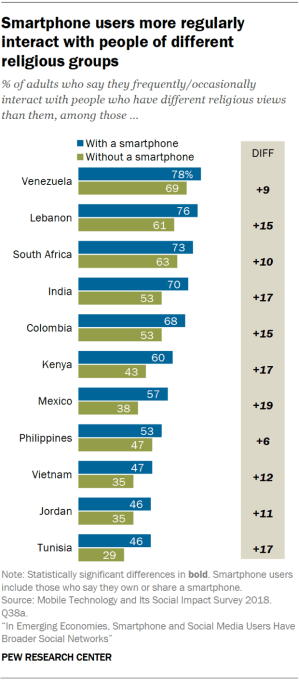
These sorts of trends help up across the nations studied, Pew noted, with a median of 66% saying they interacted with people with different income levels, 51% saying they interacted with a those of different race or ethnicity, 50% saying they interacted with those having different religious views, and a median 44% saying they interacted with those who supported a different political party.
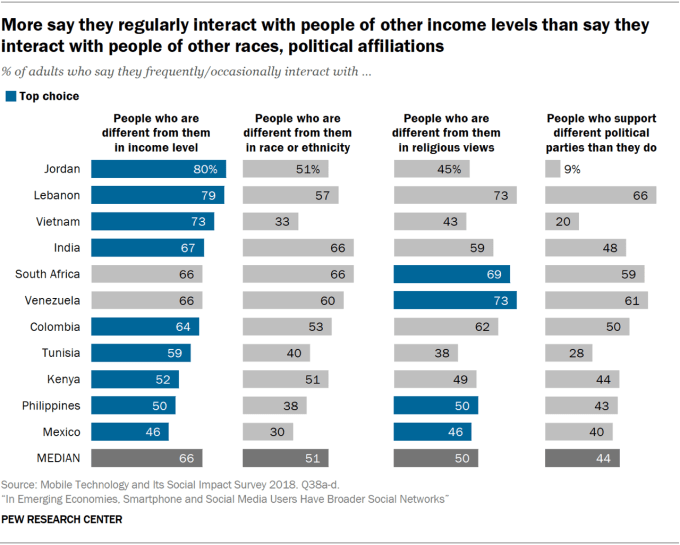
The use of social media and messaging apps was found to be a huge contributor here, as it made people more likely to encounter people different from them, the study also said.
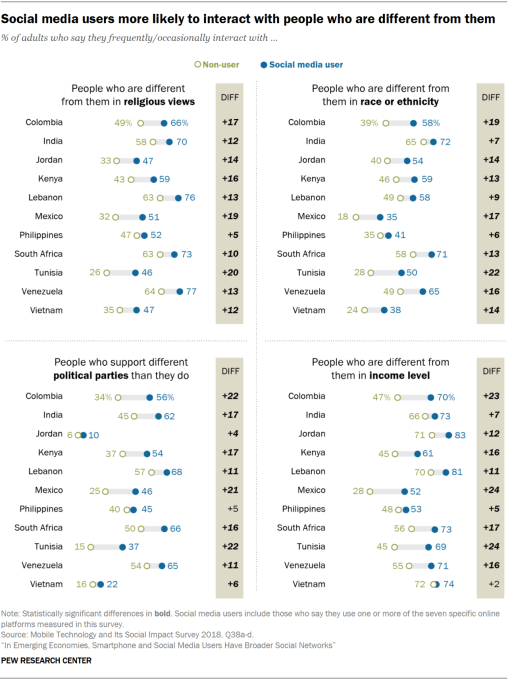
The report, however, isn’t claiming that smartphone and the related social media use are the cause of this increase in diversity in these people’s lives. There may be other reasons for that. Smartphone owners, in general, may have more resources and money — they own a smartphone, after all — and this alone could help expose them to a more diverse group of people.
That said, smartphones are helping people stay connected to distant family and friends, and build out online networks of people they don’t ever see in person.
More than half of people in most of the surveyed countries said that only see half — or fewer — of the people they call or text in person. 93% said they keep in touch with far-flung contacts. And a median of 46% said they see their few or none of Facebook friends regularly.
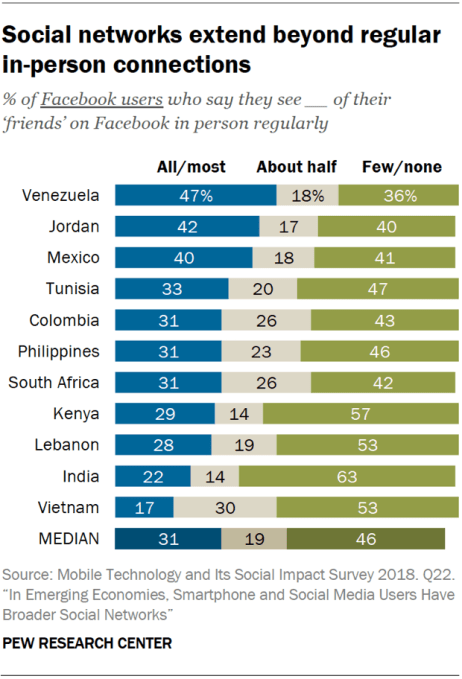
All this connecting isn’t seen as being fully positive, however.
An earlier Pew report found that users in these 11 countries believe the internet and social media are making people more divided in their opinions and only sometimes more accepting of different views. Exposure to diversity and acceptance of it are different things.
The new report also gets into how smartphones are used. For example, a median of 82% said they texted, 69% took photos or videos, 61% looked up health information, 47% looked up news and political information, and 37% looked up information about government resources.
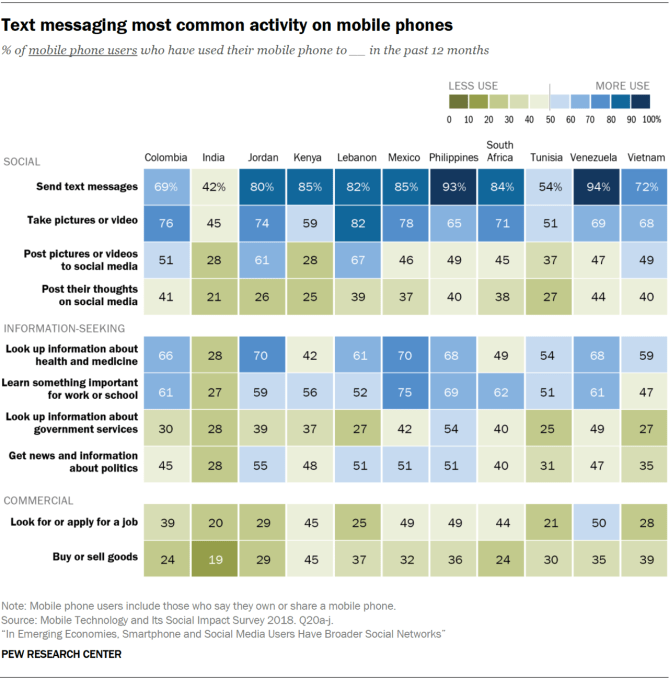
It also examined smartphones’ impact on digital divides, noting that people with access to these devices and social media, as well as younger people, those with higher levels of education and men, were gaining more benefits than others.
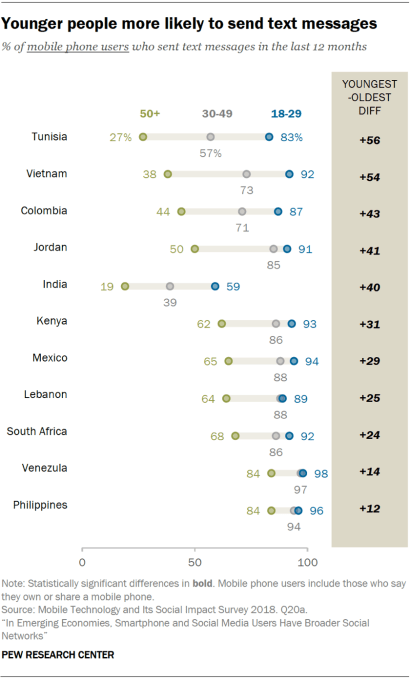
The study is based on in-person interviews conducted by D3 Systems, Inc. and the results are based on national samples, notes Pew.
The full report is available here, with deeper dives on activities and data by individual countries.
